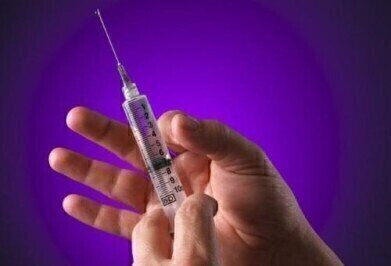-
 Patients don’t face increased Guillain-Barre syndrome risk after vaccination
Patients don’t face increased Guillain-Barre syndrome risk after vaccination
News
Patients don`t face increased Guillain-Barre syndrome risk after vaccination
Jun 28 2013
Patients are not up against an increased risk of Guillain-Barre syndrome following a vaccination, a new study has found.
Research from Kaiser Permanente observed 415 confirmed cases of Guillain-Barre syndrome between 1994 and 2006, finding that just 25 patients had received any vaccine in the six weeks before the onset of the disease.
As well as this, the research found that 277 patients suffered a respiratory or gastrointestinal illness in the 90 days before the onset of the condition.
Gullain-Barre Syndrome is an acute disease that is believed to be an autoimmune disorder, leading to the destruction of a nerve’s myelin sheath and peripheral nerves.
Often, the syndrome is temporarily associated with an infectious disease and around two-thirds of all cases are preceded within three months by a gastrointestinal or respiratory infection.
Although Guillain-Barre syndrome was linked to the influenza vaccine in a 1976 study, the association has not been clearly made since. However, there have been reports of an association with other vaccines.
In the past, studies of Guillain-Barre Syndrome as a potential effect of vaccines were subject to differences between vaccinated and unvaccinated individuals.
Roger Baxter, co-director of the Kaiser Permanente Vaccine Study Centre, said: “If there is a risk of Guillain-Barré syndrome following any vaccine, including influenza vaccines, it is extremely low.”
The Vaccine Study Centre found that variables which change over time, such as infectious diseases or rates of vaccination, can cause confusion in observational studies, where collected data is assessed rather than randomising people to treatment against placebo.
As a result of this, the researchers believe that it is necessary to use special epidemiologic and statistical methods to overcome such variables.
The study focuses on the outcome of the tests, before looking to determine vaccination status, which can control many of the variables that change over time, resulting in a more accurate measurement of Guillain-Barré syndrome risk or recurrence.
Posted by Fiona Griffiths
Digital Edition
Lab Asia Dec 2025
December 2025
Chromatography Articles- Cutting-edge sample preparation tools help laboratories to stay ahead of the curveMass Spectrometry & Spectroscopy Articles- Unlocking the complexity of metabolomics: Pushi...
View all digital editions
Events
Jan 21 2026 Tokyo, Japan
Jan 28 2026 Tokyo, Japan
Jan 29 2026 New Delhi, India
Feb 07 2026 Boston, MA, USA
Asia Pharma Expo/Asia Lab Expo
Feb 12 2026 Dhaka, Bangladesh


















